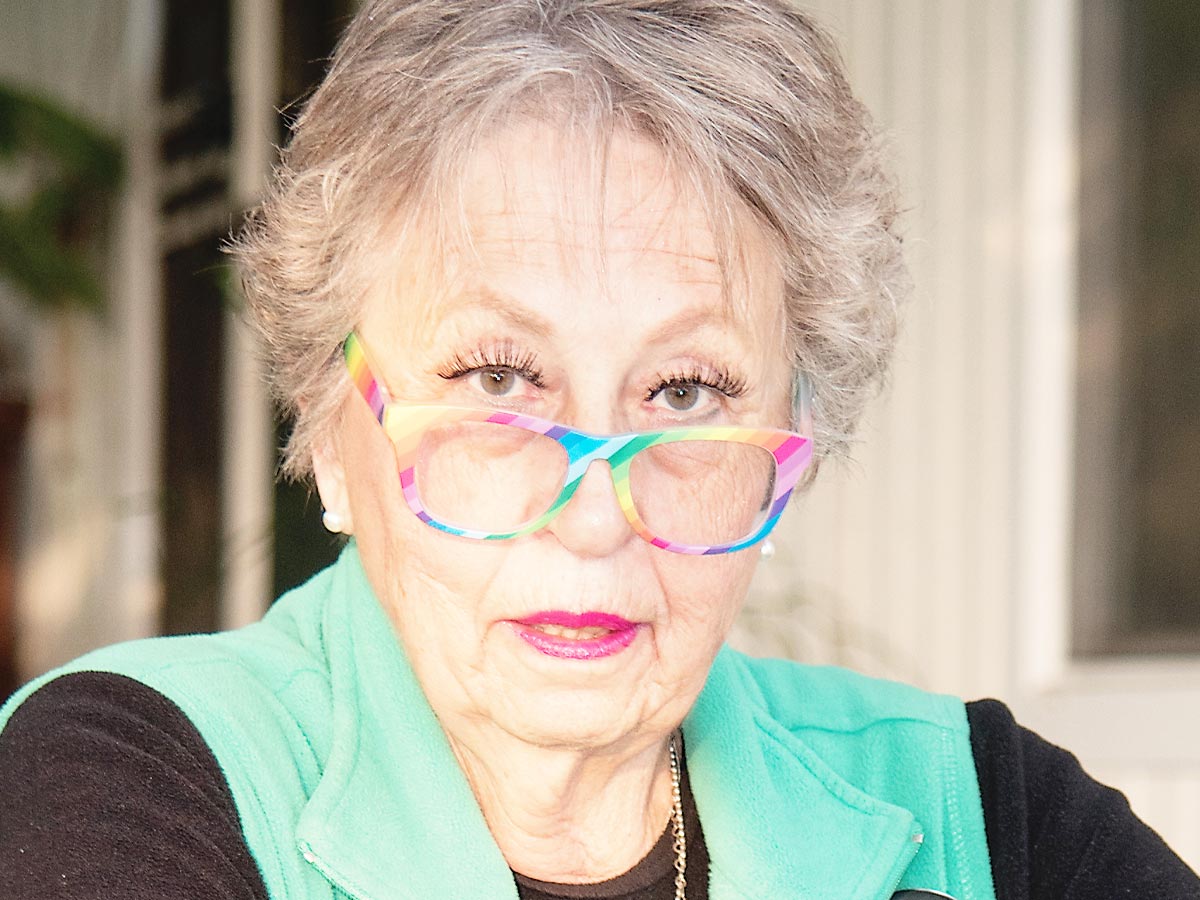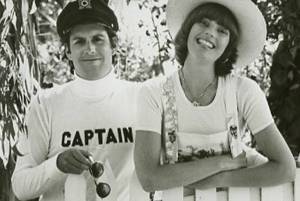By KEN LEVY
She’s a dangerous grandma with boots on the ground.
So says Gisela Woggon, 74, of Boise, Idaho. Gisela has been an activist for social justice and women’s equality for more than 30 years. You’ll find her at any rally in Boise, where people gather to speak up against perceived injustices against minorities, women, and marginalized populations.
She’s also right there when there are causes for which to advocate, such as diversity protections and medical marijuana.
And she’s always shown up with the most peaceful of intentions.
“That’s my whole thesis,” she said. “Peaceful and persistent.”
Gisela’s activism has deep roots in her family background. They came to the United States when she was 5 years old.
Her German parents came from East Prussia, and they met on the flucht, “when everybody ran to the west from the Russians, on foot, 1,000 kilometers.”
That evacuation took place in 1945 during WWII.
Gisela was born in 1946, and her family was living in a refugee situation in northwest Germany. They emigrated to Ojai, Calif., shortly after.
“I know what a great gift it is to be heard and acknowledged,” she said. “When I was a little girl, I learned about prejudice, because I didn’t speak English, and I got called things like Jew killer and Nazi.”
The name-calling in school went beyond her and her brother, to the black child in the class.
“We had the same problem. My whole life, I’ve never been able to not see that. I didn’t get to march with Martin Luther King, Jr., but I always saw what was going on,” she said. “I like the people that either have a big voice, or need a big voice.”
By the time she was a teenager, she was reading about social issues, including details of what happened during the war.
“That was the first of my wanting something that was bigger than me,” she said.
“It went a short step from the men in the brown shirts in Berlin. When you get people scared enough, you got them. We’ve got to get tired of this at some point. I believe we’re working on it. I’ll die with that belief.”
She was in her 20s when she became active with the National Organization for Women (NOW), which met at a local coffee shop in Ojai.
Gisela said she didn’t always have the luxury of being an activist, since she had to raise two teenagers alone, without help, after leaving a violent marriage.
She went back to school, earning her Master’s in counseling psychology then followed her career path working with addicts and families.
“I kept growing up and not being so afraid,” she said.
Gisela moved to Idaho in 2005 and eventually settled in Boise.
“There was the state house, and it was like a dream come true,” she said. “I think one of the first things that happened to me was I went to look at the political buildings and the soap opera of the government.”
She began speaking out for women and made signs for the women’s march in Boise in 2017, which was attended by more than 5,000 supporters of women’s civil and reproductive rights.
Women’s equality tops her list of action items, but she asserts all issues are human issues.
“I am dedicated to action, so now I’m vice chairperson at Kind Idaho.” That organization is trying to pass a 2022 medical marijuana initiative in the Gem State, which will take gathering 100,000 signatures “so the voters can decide.”
Idaho is “the only place that punishes you for having cannabis when you’re 84, and you’re using it for sleep and osteoporosis. They could call you a felon and put you in jail,” Gisela said. “But we will persevere.”
She’s also membership chair for NOW in the Treasure Valley, is a member of the NAACP, and supports Black Lives Matter.
She tries to find common ground with those who disagree with her perspective.
“We all have things that we love,” she said. “We love our families, we love the beautiful place we live in, and then we start to work on how can we improve it so that everyone that’s already here feels included and valued.”
Gisela said many attempts to add the words “sexual orientation” and “gender identity” to the Idaho human rights act didn’t work out, although Meridian, Victor, and Driggs, among other communities, enacted equal protections for the LGBTQ+ community over the past few years.
“It is slowly happening,” she said.
Although many of her(and other’s) efforts have yet to bear fruit, she has no intent of stepping aside until she sees just resolution. Gisela says she’ll stay on the front lines however long it takes.
“I don’t have the luxury of not speaking up anymore.” ISI










